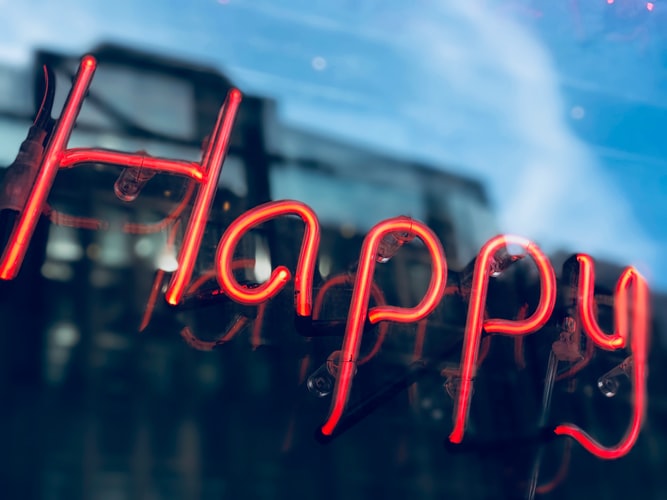|
In my clinical practice I regularly ask new clients about some things they would like to have more of in their lives. “I want more happiness” is a frequent response. People want to be happy and to experience more of that feeling more often. Being happy is truly one of life’s most satisfying feelings and it is natural for people to want to experience it in their lives. People, however, have a very difficult time figuring out what being happy really means. They know it is a feeling, but how to make the experience of happiness consistent in their lives escapes them. Years ago, I led a therapeutic discussion group called The Art of Happiness. I recall a lady asked me if I thought happiness was indeed an art. I told her that I really did. I believe happiness is an art because, while some people may have natural artistic ability, great artists get to be great only through practice. The same is true for happiness; some people may have a happier or feel-good disposition, but natural inclination is not enough. It takes practice to weather the storm of negative life events and maintain an underlying sense of wellbeing and a positive outlook. In this series of blog posts we will look at the perception of happiness, elements that contribute to it, the attitudes people who deeply experience it in life have, and strategies for cultivating a fulfilling sense of happiness. What is the difference between enjoyment and happiness? In any discussion on the nature of happiness and how to experience happiness, it is important to make the distinction between enjoyment and happiness. What is Enjoyment? Enjoyment is the appreciation of an experience and the good feelings from the people, places, and things that make up the experience. Enjoyment is short term and does not bring lasting durable satisfaction to your life. You can experience enjoyment at a party and have a really good time but once the music stops and it is time to go home the enjoyment diminishes and the experience fades. You can have a lot of enjoyment on a night out with friends at a comedy concert. You may even feel “happy” in the moment, but the next day the experience has benefitted you little more than being a pleasant memory. An important aspect of enjoyment is that it is based in external factors. If the circumstances of a situation are right, we like it and we feel “happy”. If, however, circumstances are not to our liking, we do not enjoy it and we feel “unhappy". This is very significant in a discussion about happiness because it shows that many people’s experience of enjoyment, which they wrongly think of as “happiness”, is dependent on the circumstances in the moment and is a product of chance. When things are left to chance there is no sense of control, and the contentment we have with our lives is at the mercy of fate. What is Happiness? Where enjoyment is dependent on externals and is a product of chance, happiness is grounded in internal qualities and is a product of choice. Happiness is experienced when people cultivate a confident and fluid expression of themselves in their lives. This creates a more durable feeling of wellbeing that is associated with accomplishment. Making accomplishments and living with a sense of purpose tend to produce the lasting satisfaction that is associated with happiness. In short, you may have chances to take enjoyment, but you make choices to build happiness. There is nothing inherently wrong with enjoyment, and the capacity to experience enjoyment here and now with spontaneity is an important element in developing a happy personality, but remember it is just an element. Don’t Confuse Enjoyment with Happiness A problem arises when people become dependent on the experiences they find enjoyment in. These things become habits and often addictions and people are often unaware of what they sacrifice for this enjoyment. When it reaches this point, people often use their enjoyments as distractions from the responsibilities of life which, ironically, if they would deal with may create a greater sense of security and happiness for them. Many people live with the delusion that if they can string enough moments of enjoyment together in close enough sequence, they are happy. The problem is the enjoyable experiences probably do not produce anything which adds to the person’s sense of stability or security in life. In fact, they may result in detrimental unintended consequences. A great many of us find happiness difficult to even conceptualize, let alone achieve. It is a mystery. For us, to choose happiness means we must overcome barriers. Fear is the greatest barrier and the unconscious dependence on comfort keeps us stuck. How does fear prevent happiness? How do I get unstuck? Join us for part II of The Art of Happiness next week.
0 Comments
Leave a Reply. |
AuthorLloyd Robrecht Archives
August 2021
Categories |

 RSS Feed
RSS Feed
